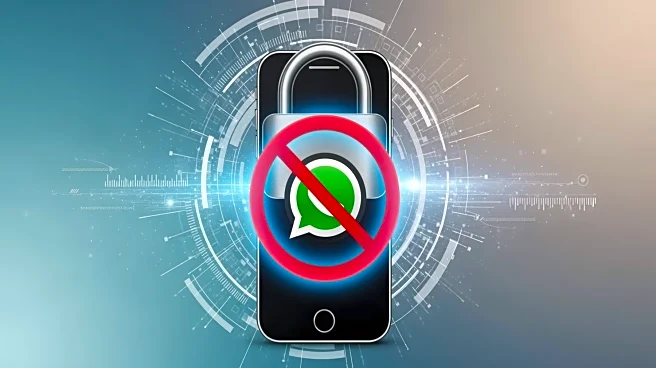What's Happening?
A Northern California District Court has issued a permanent injunction against NSO Group, preventing it from targeting WhatsApp users with its spyware. This decision comes after a lengthy legal battle
initiated by WhatsApp, a subsidiary of Meta, against the Israeli spyware company. Judge Phyllis Hamilton ruled in favor of WhatsApp, emphasizing the importance of technological privacy and the potential harm to Meta's business if WhatsApp's encryption were compromised. The court also significantly reduced the punitive damages previously awarded to WhatsApp from $167.3 million to $4 million, citing a lack of precedent for such cases in the smartphone era. The ruling does not extend to NSO Group's customers, allowing them to continue using the company's technology.
Why It's Important?
This ruling is significant as it sets a precedent for the legal consequences of targeting American companies with spyware. It underscores the importance of privacy and security in digital communications, particularly for platforms like WhatsApp that rely on end-to-end encryption. The decision also highlights the ongoing tension between technology companies and entities that develop surveillance tools. While the reduction in damages is a financial relief for NSO Group, the injunction poses a substantial challenge to its business model, potentially affecting its operations and market value. This case reflects broader concerns about the use of spyware and its implications for civil liberties and privacy.
What's Next?
NSO Group is expected to review the court's decision and consider its legal options moving forward. The company may appeal the ruling or seek to negotiate terms that could mitigate the impact on its business. Meanwhile, WhatsApp and other tech companies will likely continue to advocate for stronger legal protections against spyware and similar threats. The ruling may also prompt discussions among policymakers and industry leaders about the regulation of surveillance technologies and the protection of digital privacy.
Beyond the Headlines
The case against NSO Group raises ethical questions about the use of spyware and its impact on human rights. The technology has been criticized for enabling governments and other entities to conduct surveillance on journalists, activists, and political opponents. This ruling could influence future legal and regulatory approaches to balancing national security interests with individual privacy rights. It also highlights the need for international cooperation in addressing the misuse of surveillance technologies.









